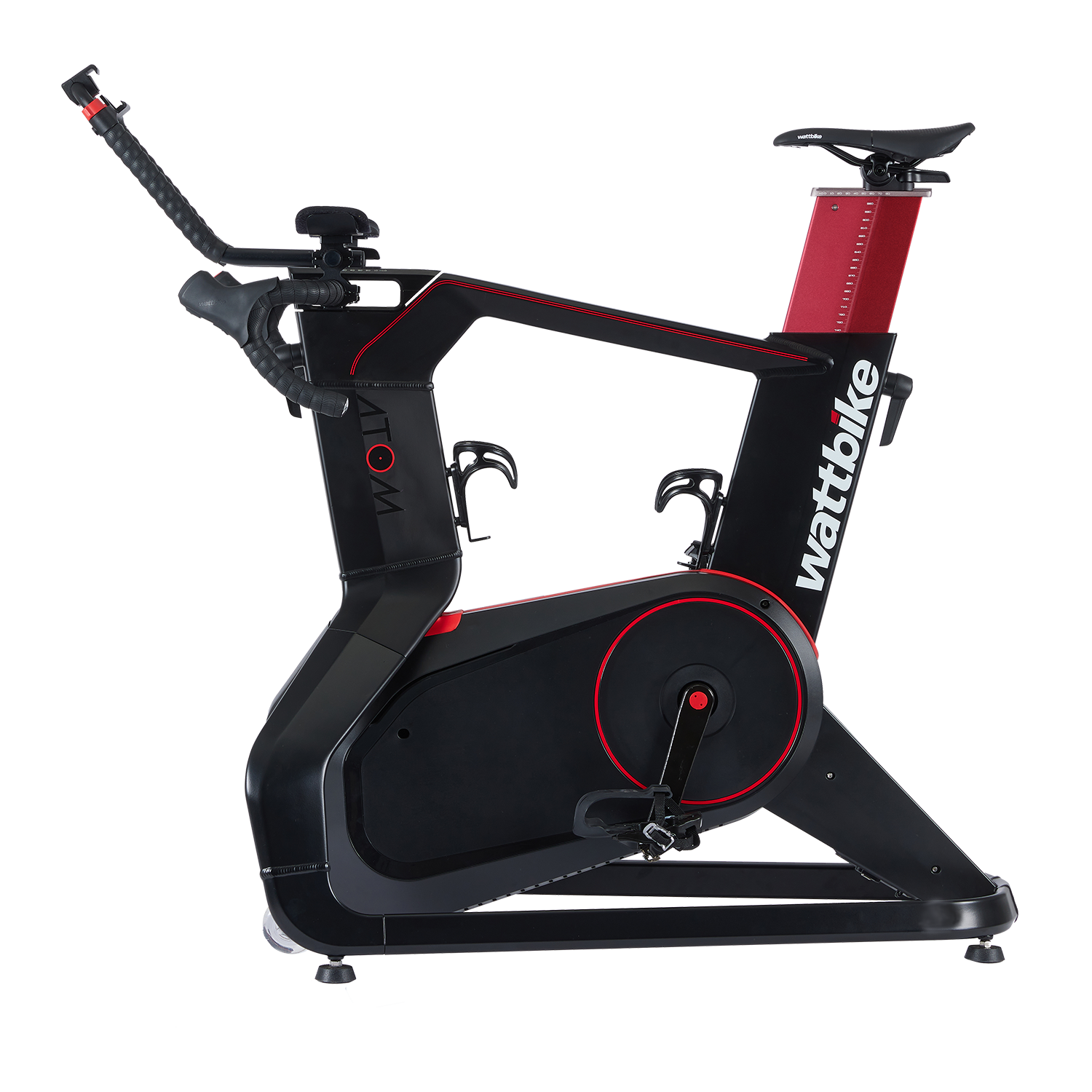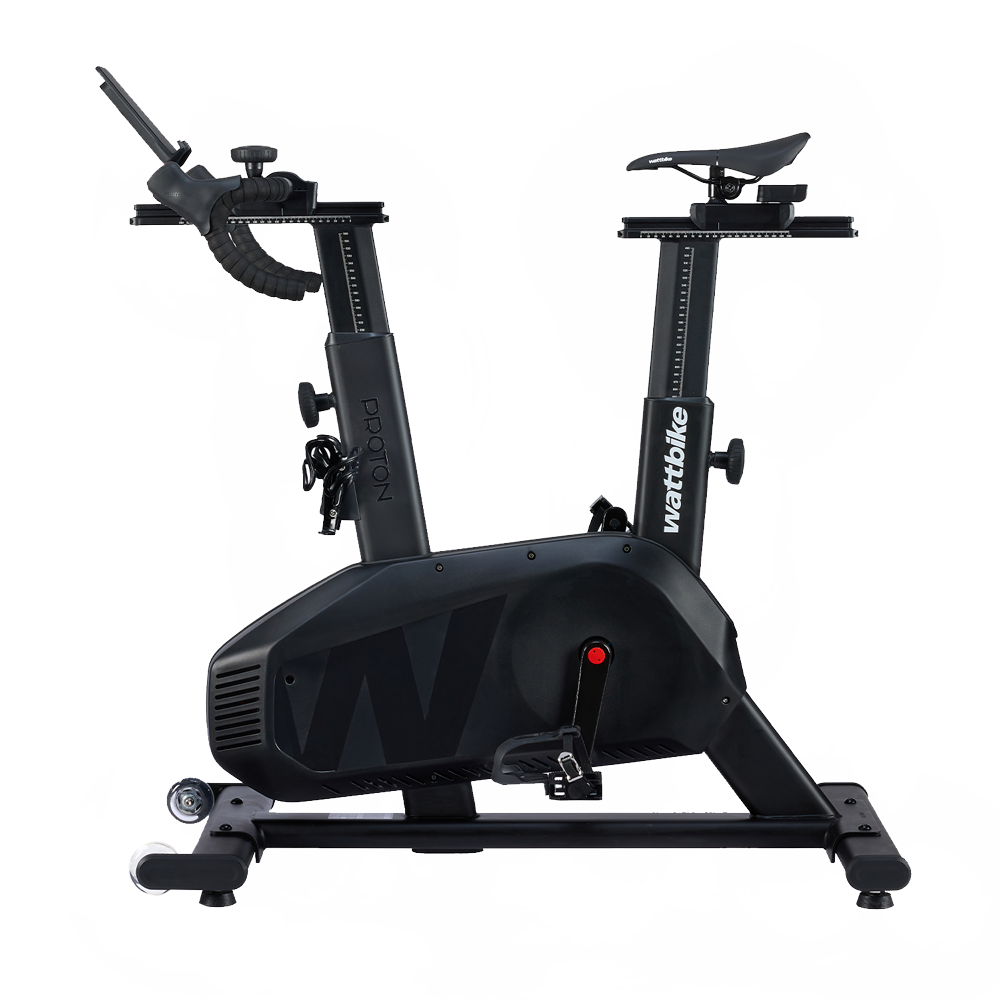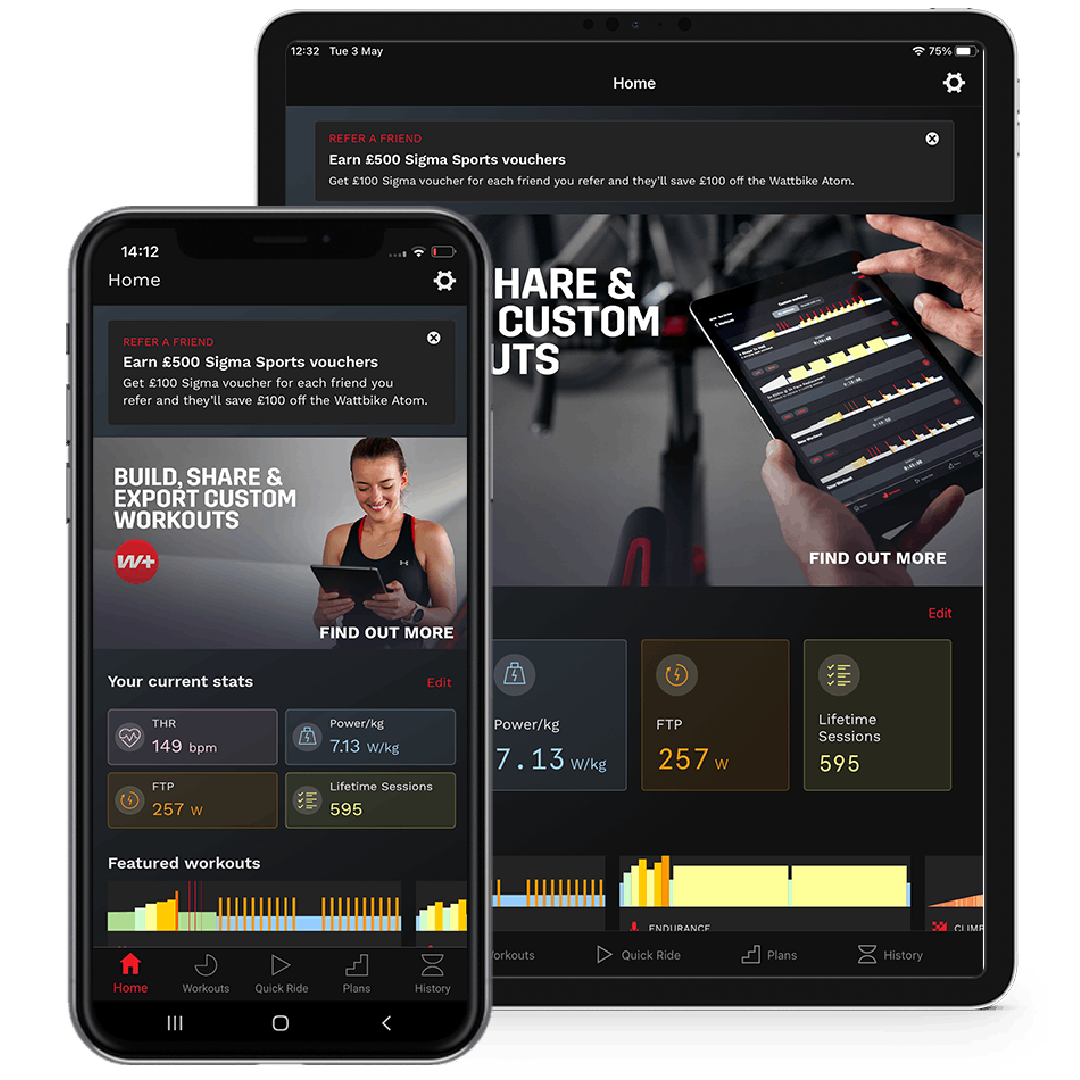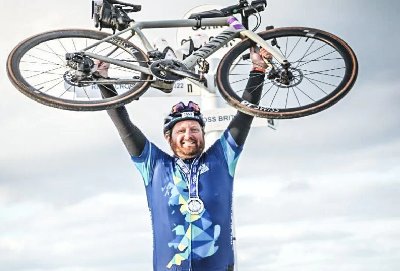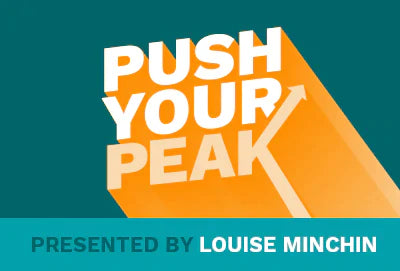Your Cart is Empty
SHOP
TRAINING & APPS
SUPPORT
news & information
LUCY GOSSAGE - THE CHOICE IS YOURS
Lucy Gossage is a 14-time Ironman champion and an oncologist. Most people would be happy with one of those descriptors – and even then, a single Ironman finish would suffice, let alone multiple championships – would be plenty to feel good about. A Wattbiker since 2013, we find out what drove Lucy to such great heights, and where she’s aiming in the future.

THERE'S ONLY ONE WAY TO FIND OUT
Looking at Lucy’s list of sporting achievements, you’d be forgiven for thinking there was a great plan at work, a lifelong dream, decades of dedication, post-it pinned to a childhood bedroom wall. You’d be wrong. Turns out, it really can come from anywhere, at any time. You just have to be open to it.
“I had no sporting background. I came last in a cross country when I was 13. I hadn't done anything competitively. I fell into triathlon as a dare when a long-term relationship ended. I raised loads of money for charity because everyone looked at me and thought, there's no way you'll be able to do it. I didn't believe I'd do it. It was going to be a one-off challenge. That was the first time in my life I'd committed to something that I genuinely didn't know I could finish.
After the Ironman, I realised that I actually really loved the training, and I missed it. So I joined a club. It gave me a whole new social life. That's when I fell in love with just being part of a club, and training with people.
But the reason I got good was actually because I moved to Cambridge to start a research PhD. I stopped seeing patients and really missed the clinical side of work. I got lost with what I was trying to achieve with a PhD and because of that triathlon training became a way of validating my days. If the PhD hadn't gone very well, at least I could say, I've done a good bike or good run session. And that was how I started to get good at triathlon.
I finished the PhD and had two and a half years as a full-time athlete, which was incredible. It came with its pressures – it's harder being a full-time athlete than people realise. Afterwards, I went back to work as an oncologist to finish my clinical training, but carried on racing professionally for another two and a half years and they were probably my best years. Then I retired at the end of 2018 and had what I call a glory year, where I was just doing amazing races in amazing places because I was still fit enough to do it without training quite as hard.
And then COVID came – I retired at the right time! Now I’m dipping my toe into ultra running, non-competitively, but I love crazy long distance jalks (that’s walk meets jog) and just exploring where I can go on foot.
I'm really passionate about supporting people with cancer to get active and stay active. So that's my passion project outside of work, and my own… I wouldn't call it training now, I'd call it having fun.
The most important thing for me in terms of setting a goal is knowing your why. When a goal seems challenging or even unreachable – which I love, like that first Ironman – then you have to know that you're doing it for the right reasons.
Along the way there are always going to be times where you're making sacrifices or things are not going the right way, or you just don't want to do whatever it is you're doing. And that's when it's really important to know your why, because if you come back to that, then all of a sudden the sacrifices and the things you're struggling with will feel much easier to overcome.
What triathlon showed me was that I used to cherry-pick things I knew I could do. That first Ironman I genuinely didn't think I could finish, and I realised how much more rewarding it is when you sign up to something that you think you might not be able to finish, and you do it.”
THE NEXT CHALLENGE
I've got a place in the Spine Race in January 2024. It feels exactly the same as that first Ironman did. There are so many things that could go wrong. I genuinely have no idea whether I'll be able to finish. But I know that I'm doing it because I really want to.
I sprain my ankles really regularly. I'm sure that could easily happen in the race, but I'm doing everything I can to strengthen them. I'm so excited about the process of trying to get to that start line fit and strong, and in a good way, to give it a go and see how I can deal with it. The race is almost a bonus at the end of the journey to the start line.
The ultra journey that I'm on now came about in lockdown. When the world locked down I started to explore the UK a bit more. My first point to point adventure by foot was in 2021, when we decided at the last minute to walk across Wales for our holiday. Each time I do a long distance adventure, I learn something. I just love that sense of adventure. When I look back to where I was two years ago, when we walked across Wales, I think, wow, we've come on so far. Back then, doing back to back marathons in a day felt bonkers. Now we can back up 40 mile days. It doesn’t feel easy, but it’s manageable.
For me, you need to have the tough parts. That's what makes it an adventure. Being able to choose to be out of your comfort zone and make yourself suffer. It sounds like a cliché, but I find it really helpful to remind myself that being able to choose to suffer is a real privilege. So many of my patients don't get that choice, they're stuck in a hospital bed or they're having chemo. And I've got a body that – touch wood – allows me to press the hurt button when I want to. It's tough, but it's such a privilege.
TRAINING
On a Tuesday morning I'd always do a regular hard interval session on the Wattbike. And I still use a Wattbike as part of my training and, certainly with the running, it's the way that I do the hard stuff because there’s less injury risk.
I like to ride outside because it's fun. But especially in the winter I'll do a couple of Wattbike sessions a week, depending on the weather. I’ll do a hard interval session and an overgeared session. They've been my two go-to staples. Just because it's such an easy way to get a bit of extra fitness without just doing lots of running miles.

LUCY ON THE HUB
“Every now and then I get a message or see a post saying I've just done your session. Everyone says it's way too hard.
It’s one of my go-to sessions, a strength builder. The power targets can be quite hard with not much rest – my philosophy is that you may as well just get it done rather than spend five minutes in between each one twiddling your thumbs.”
MOTIVATION TO MOVE
Exercise is daunting for a lot of people. That's why I like the term movement.
Five years ago I co-founded 5k Your Way – Move Against Cancer, an initiative provided by Move charity. We're a supportive community that inspires people living with and after cancer to be active by coming down to designated park runs on the last Saturday of every month. We call ourselves an active support group with a difference.
People come along and they walk, they jog, they run, they cheer, they volunteer, or they just spectate. They do as much or as little of the 5k as they want to, and then chat over a coffee and a cake. 5k Your Way is about doing something positive in a supportive community of people who get what it's like to be living with cancer. Most of the time they don't talk about cancer. Sometimes they do. But either way, everyone is out there in the fresh air doing their thing. When I see people finishing, sometimes I think they have a similar feeling to the emotions I used to get when I finished an Ironman.
I remember watching a lady called Nikki who joined when she was having chemo for breast cancer. She's actually just climbing the three peaks with her family! But during her chemo she would come and walk or run the 5k. I remember the first time she came she sprinted down the finish line, took her hat off to showcase her bald head and her face was so full of emotion that I saw as ‘F you cancer, I've just done this, I've done 5k!’
Roger, who turned 79 recently, has been part of our Nottingham group for about four years. For a couple of years he was on chemo for bowel cancer which he knew wasn't curable, which made him poorly. So he stopped walking the 5k and started to volunteer. Last year the chemo stopped working and he was told there weren’t any good treatment options left. But when he stopped the treatment he felt a bit better. So he said, you know what, I'm gonna walk it again. Just the other week he walked what he thought would be his last 5k Your Way. He did it with all his family. He had this peloton of people behind him, all walking. And he crossed the finish line with his family. It's just incredible seeing that sense of achievement, proving that you can keep going.
Someone I will always remember is a lady called Sue who sadly died a couple of years ago. Sue was 70 when she was diagnosed with bowel cancer, and it had spread to her liver. It wasn't curable. She'd never run in her life, but she saw a flyer for 5k Your Way in the hospital and she joked to her family, saying, oh, when I get out of here, I'm going to do that.
And they said, what? You've never run in your life, don't be ridiculous. But true to her word she came down and she walked. And the next month she ran a bit. And then the next month – which was the first month that she came over and said hi to me – she ran the whole thing. And she said, ‘When people ask me how I am, I don't talk about the bad stuff. I tell them I've started running.’
With that incredible inspiration ever in mind, Lucy’s next big challenge will be the Montane Winter Spine Race, considered one of the toughest endurance races in the UK. She’ll be taking on 268 miles non-stop, racing along the iconic Pennine Way. We’ll be supporting her through her training – follow along @lucygossage on Instagram.
Sign up to get the latest
Be the first to hear about Wattbike news, offers and more.



